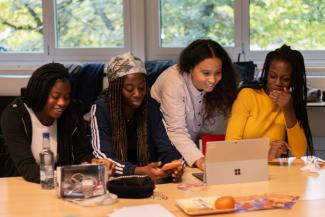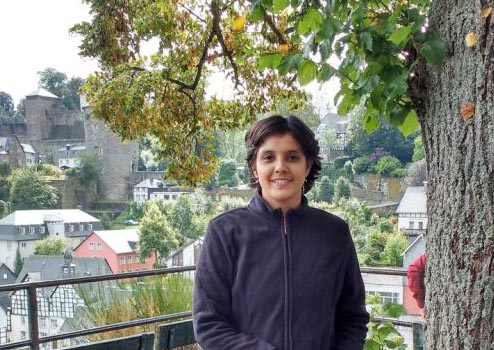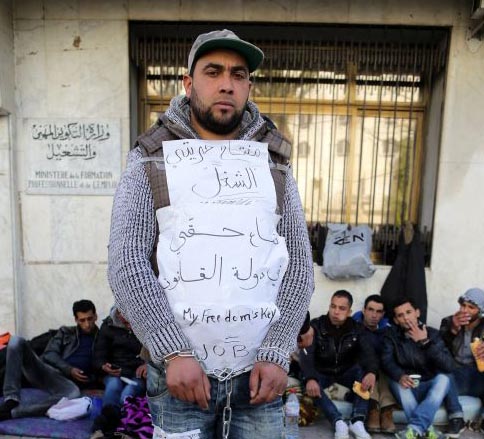Organisation
Making Black people visible and strong

Who is your organisation directed towards?
We include all people who are interested in the Afro-German community and the African diaspora – whether they are old or young, Black or white. We are very open, since we have various projects that are aimed at various target groups. Our focus, however, is on young people with African roots. Currently we are active primarily in Hamburg, Berlin and Hanover.
One of your projects is called “role models”. How does it work?
Role models is a mentoring project. That means that we find mentors for Black children and young people who meet with them regularly over the period of a year. They primarily get together for free time activities. One of our main concerns is empowerment. We want to give children and young people a contact and a role model who can open up new perspectives for them, also when it comes to their future careers. The goal is to expand young people’s horizons.
Who are the mentors?
The idea is: Black mentors for Black mentees. We believe that young people need mentors who understand their cultural difficulties and challenges at home with their parents and likewise the structural discrimination that young people are exposed to. We try to make sure that mentor and mentee have a similar background. We recruited our first mentors from our circle of friends and acquaintances, and then word got around pretty quickly. Now a lot of people are also getting in touch through our social media channels.
What other projects are you working on?
Advancement is always the goal. In that respect, the career-orientation project is a continuation of the role-models project. The focus here is on career advice, which we dispense in a variety of formats, like job fairs, company visits and stipends, as well as job coaching and help with job applications. During this process, we work a great deal with companies and try to establish contacts. In our business project, however, the goal is primarily to network young Black people with other founders, regardless whether they are absolute beginners or have already founded their own company or organisation. The emphasis here is on exchange, and we offer workshops to help founders to further develop their business ideas. Generally speaking, all of our projects always aim to improve the economic and social status of Black people in society. And we want to dismantle prejudices against Black people.
The name of your organisation is Future of Ghana Germany. What is your connection to Ghana?
The name comes from our sister organisation, Future of Ghana in England. In Germany, however, we want to be an organisation for the entire Black community. Prior to our establishment in 2017, founder Lucy Larbi took part in many events in Britain and decided that we needed something similar in Germany because Black people are often not seen here, their potential is squandered, and the community is also not very close-knit. She then put out an appeal on Facebook and a group came together. The connection to Ghana can also be seen in our team. Out of the twelve members that make up our core team, eleven have a Ghanaian background and one a Nigerian. Our other members are more diverse.
How did the organisation start?
Parallel to its founding, the role-models project was started on the initiative of Lyn Birago, who was studying special education at the time. It was the first project to get underway and remains our largest. Back then, Lyn was a classroom aid at a school in Hamburg and noticed that many children didn’t believe in themselves at all. Not only did they think that they couldn’t pass their A-levels; they didn’t even believe they could finish high school. In discussions with teachers, Birago then determined that many of the Black children supposedly had special needs. Next she approached other Black people – including me – and asked whether we could support these pupils.
Does your work here in Germany have an impact on Ghana?
Yes, there has already been a delegation trip, and we were invited to the country talk on Ghana by Germany’s Federal Ministry for Economic Cooperation and Development (BMZ) to discuss frameworks and goals for Germany’s cooperation with Ghana. There will be more exchanges in the coming year. In addition, many of us privately support various organisations or companies in Ghana.
You also support the founding of companies in Ghana and Cameroon from the diaspora?
Yes, we do so together with GIZ, which is carrying out the BMZ’s WIDU project (see Sabine Balk in e-Paper 2020/11, Monitor section). The background is that many migrants send money back to their home countries. Using the online platform WIDU.africa, people in the diaspora and people in the country of origin put together money for a business idea that will be carried out in the developing country. The German government supplements the donated funds in order to support a start-up or micro-enterprise in Ghana. We accompany this process online and also offer workshops on the topic.
What do you consider a particular success?
We’ve only been around since 2017. In this relatively brief time period, we have created structures ranging from staff positions to opening our own office to recruiting a large number of volunteers. We have arranged over 80 sponsorships through the mentoring project. We have grown very quickly. Even though we rely almost entirely on volunteers, with the exception of one permanent position and a few mini-jobs, we work constantly. This year, we even won the Hidden Movers Award from the Deloitte Foundation for our role-models project. Another highlight was a conversation with the vice president of Ghana about how the diaspora in Germany can contribute to Ghana’s economic and social development.
What difficulties have you encountered?
During the first two years we had virtually no money. And in our role-models project, we had to keep explaining why we only wanted Black people to act as mentors. It is also a challenge to carry out so many projects relying almost entirely on volunteers.
Police violence against Black people in the US, but also in Europe, has once again sparked an international debate about racism. What role does the Black Lives Matter movement play in your community?
Black Lives Matter (BLM) has always been important to us. This year, thanks to the movement, we have received an enormous influx of volunteers who now want to take an active part in strengthening our community. Furthermore, in May and June, when the issue was receiving a lot of attention, the media frequently reached out to us to discuss BLM. At the time I had the feeling, however, that interest was fleeting and would not be sustained over the long term. Nevertheless, I see on social media that there are more and more formats that address our community. I have the impression that more discussions are happening now and that our community is also getting more actively involved than before. In society in general, I have the feeling that younger people are doing a lot of thinking and are also apologising for things they have said in the past. But I see less interest in older people over 50.
What are the organisation’s plans and goals?
First we want to focus on our internal structures and make them stronger and more transparent. In terms of content, we have different goals for individual projects. In general, however, we want to continue to grow. At the end of 2020, we expanded to Hanover, our first location outside of Hamburg. We want to test our projects and establish them there if possible. Furthermore, we are currently planning two exchange projects with Ghana. The first is a youth exchange trip that will allow young people to meet up in Ghana. The main topic will be environment and sustainability. For our second trip to Ghana, we are organising meetings between experts from Germany and Ghana who work with people with disabilities.
Daisy Tanja Scheffler is the only full-time employee of the organisation Future of Ghana Germany. She studied media and communication management and initially worked in television. Her mother is from Ghana, and her father is from Germany.
t.scheffler@futureofghana.com
https://fog-germany.de










